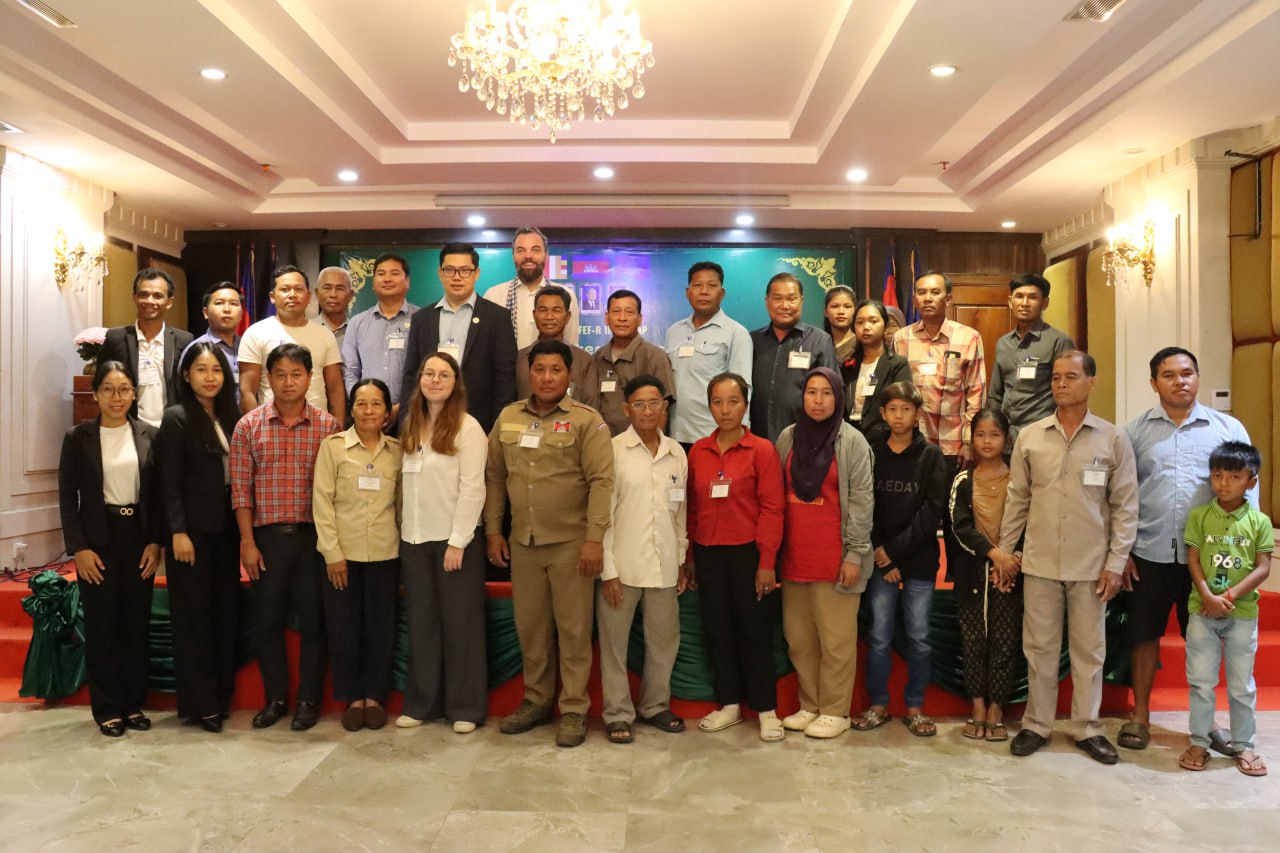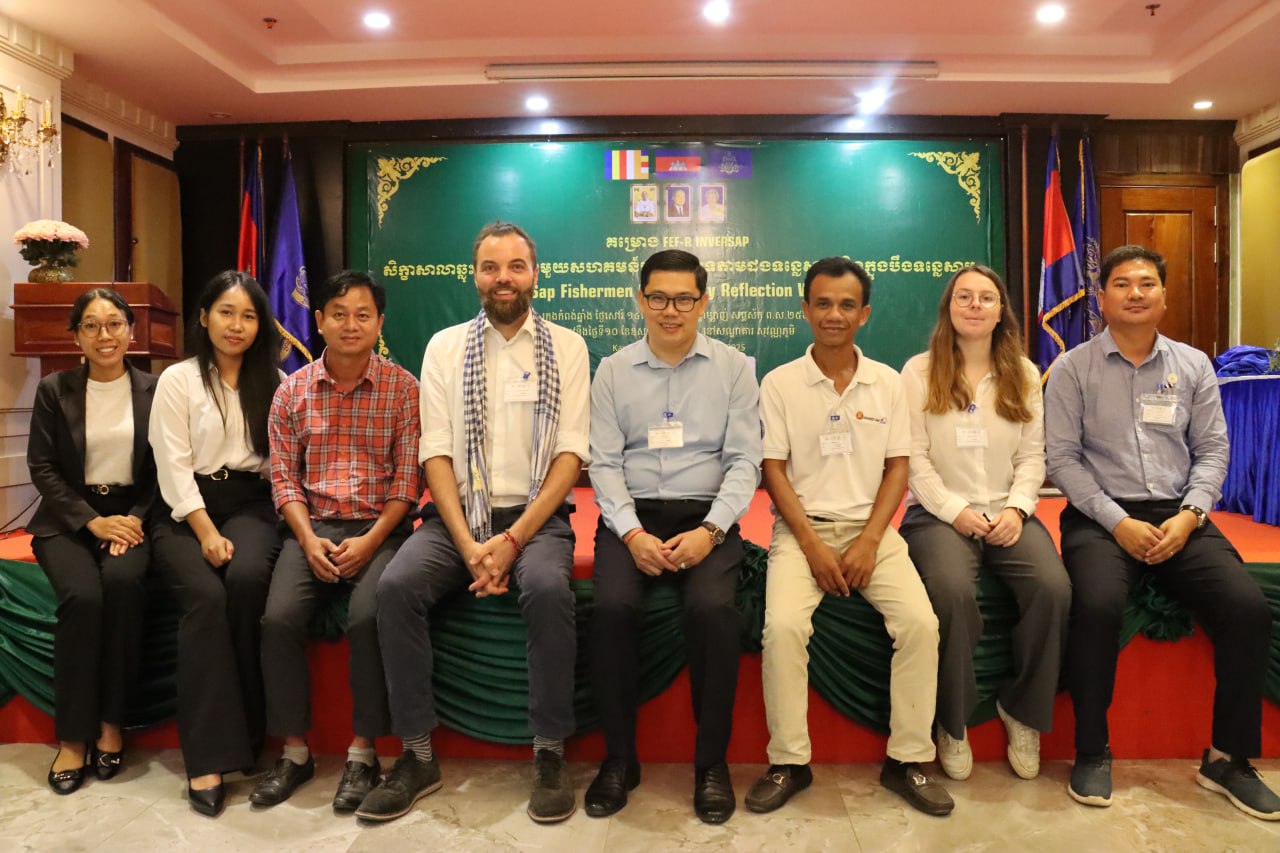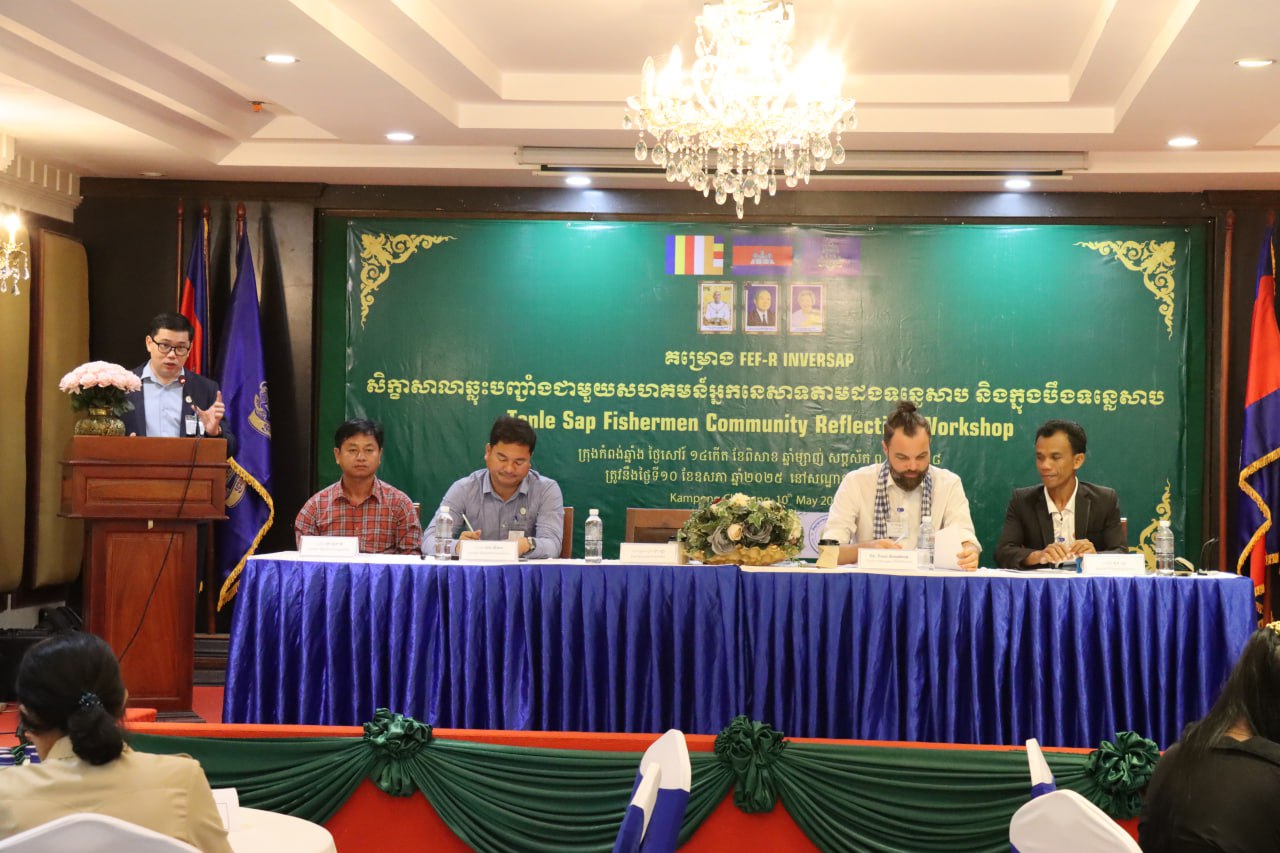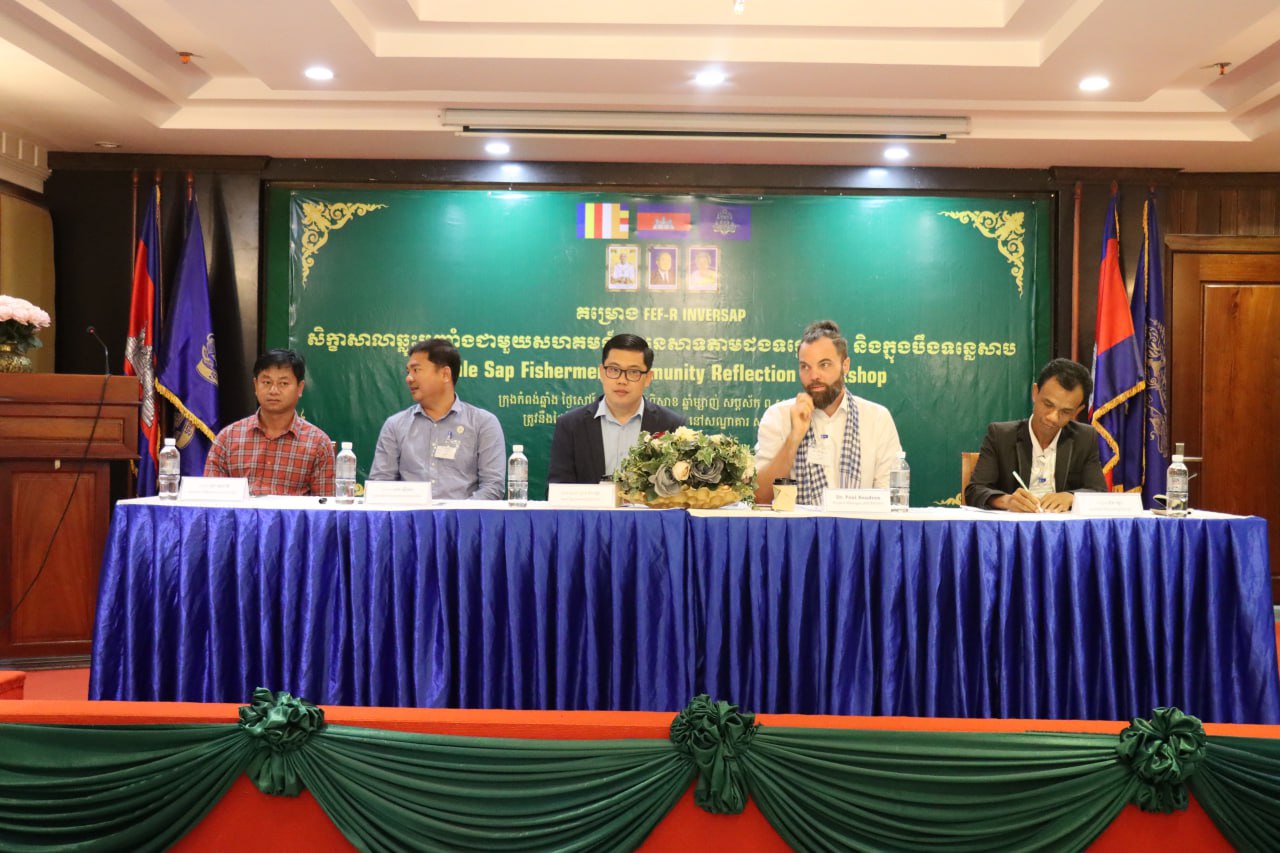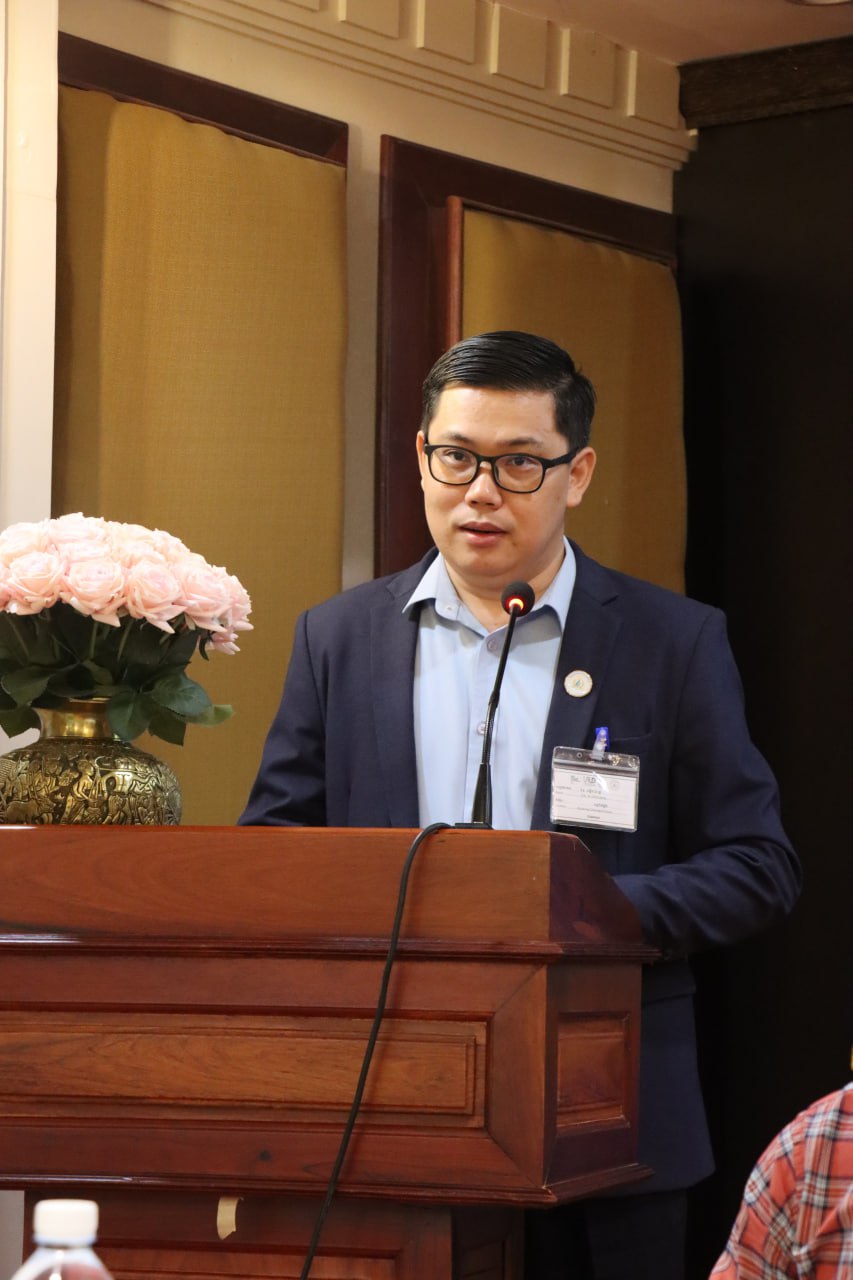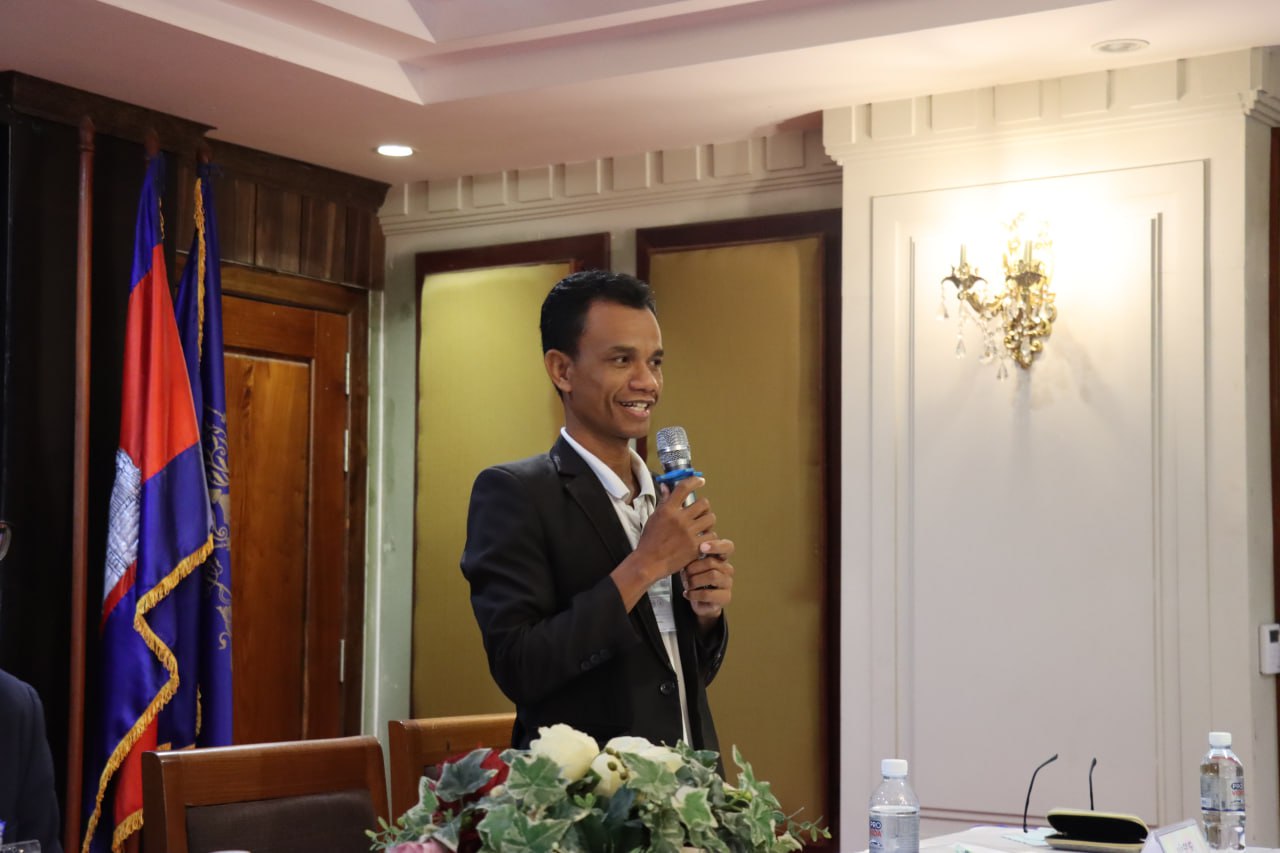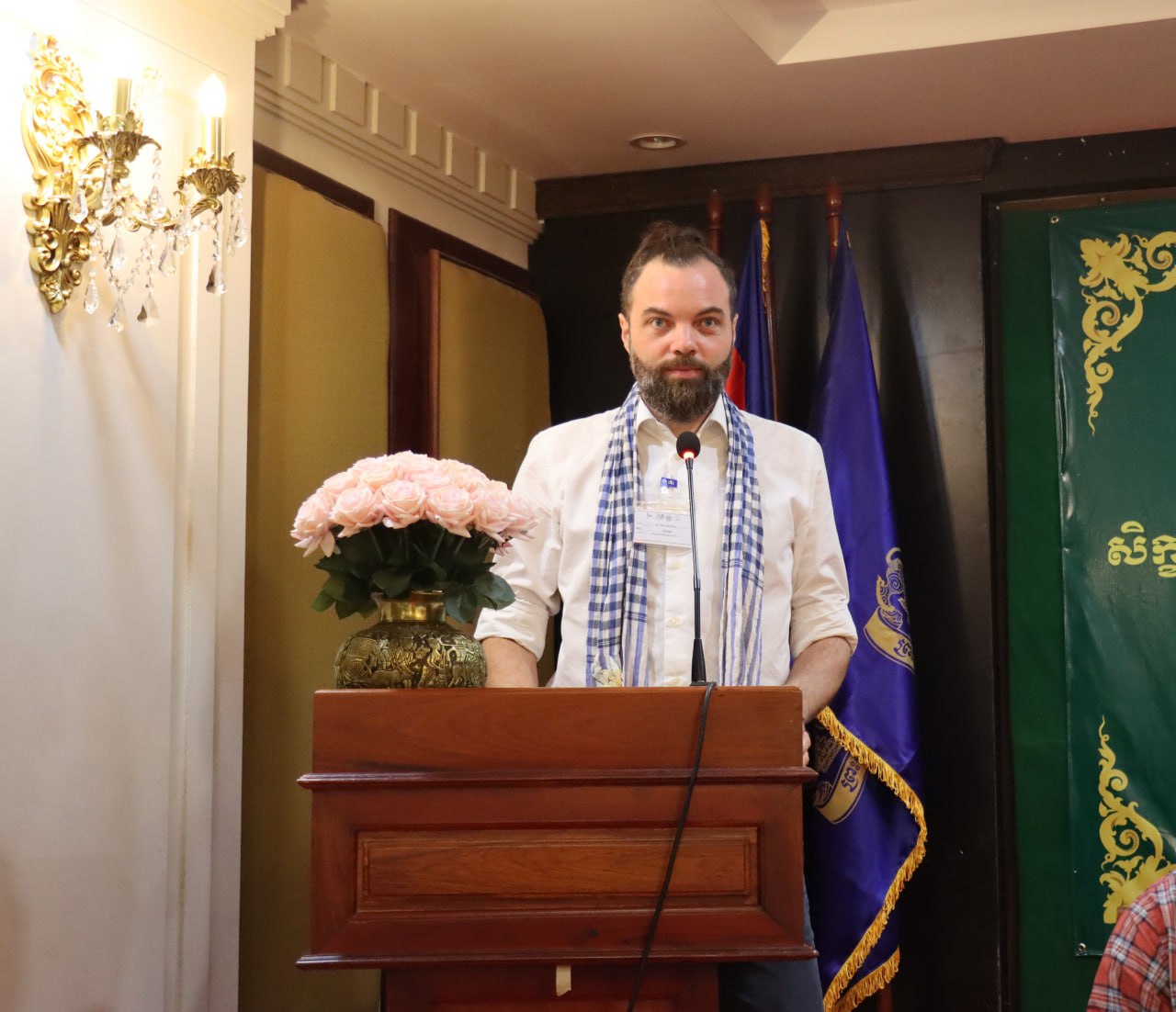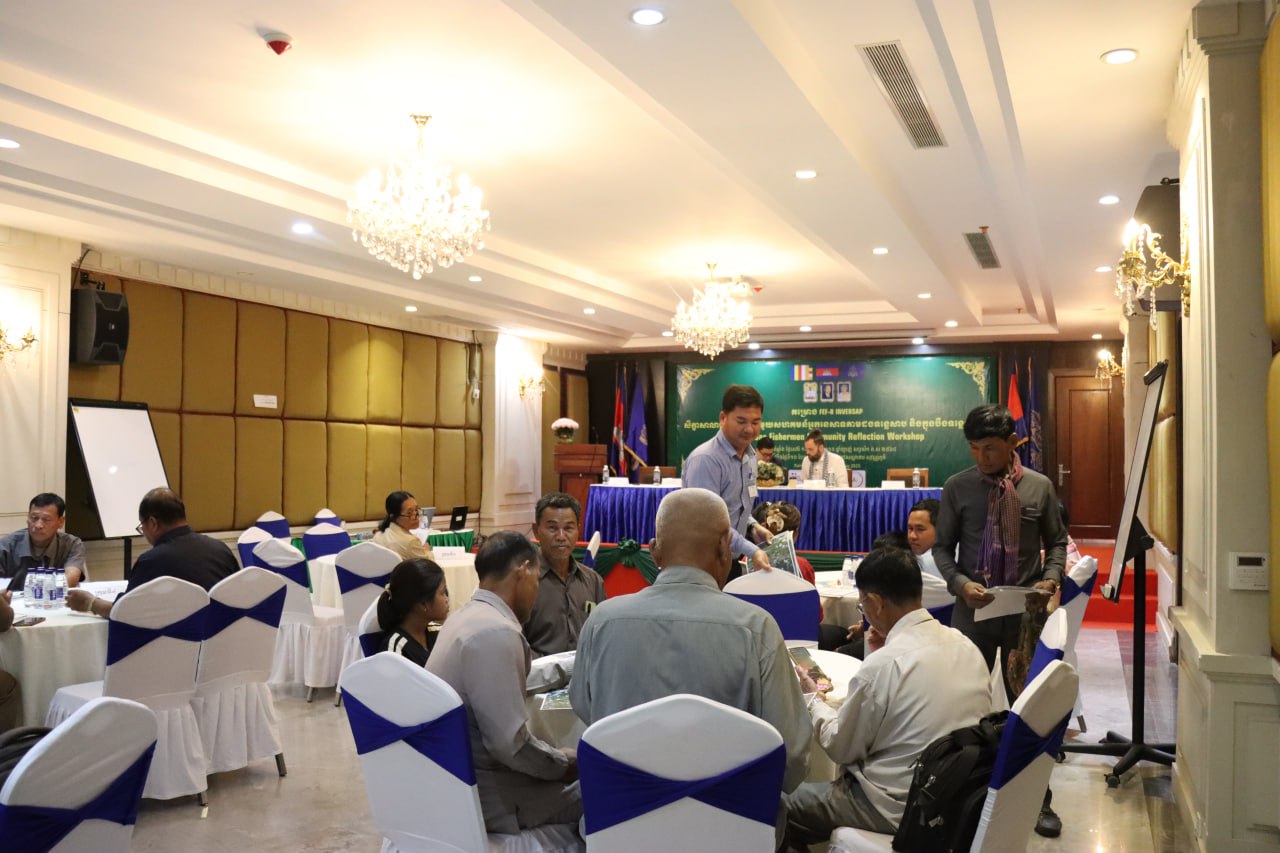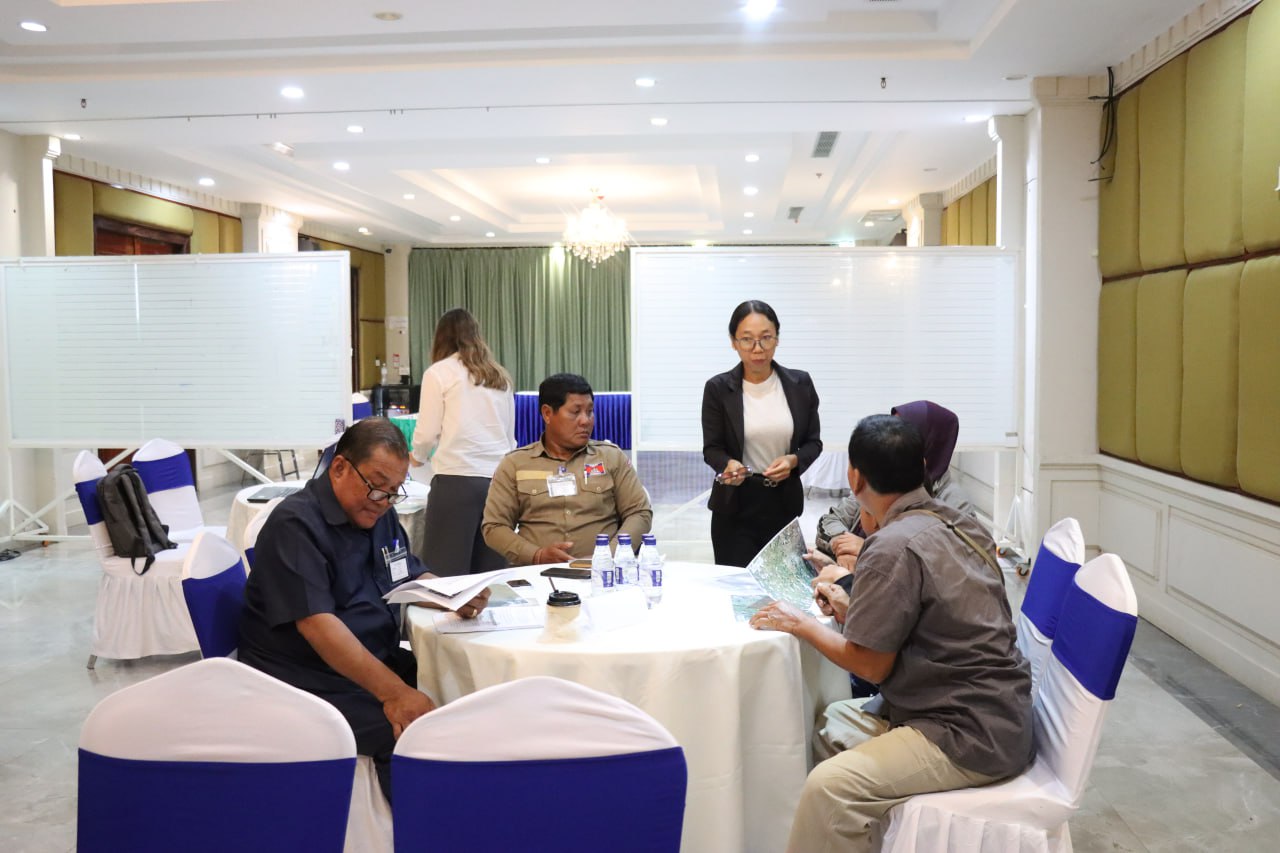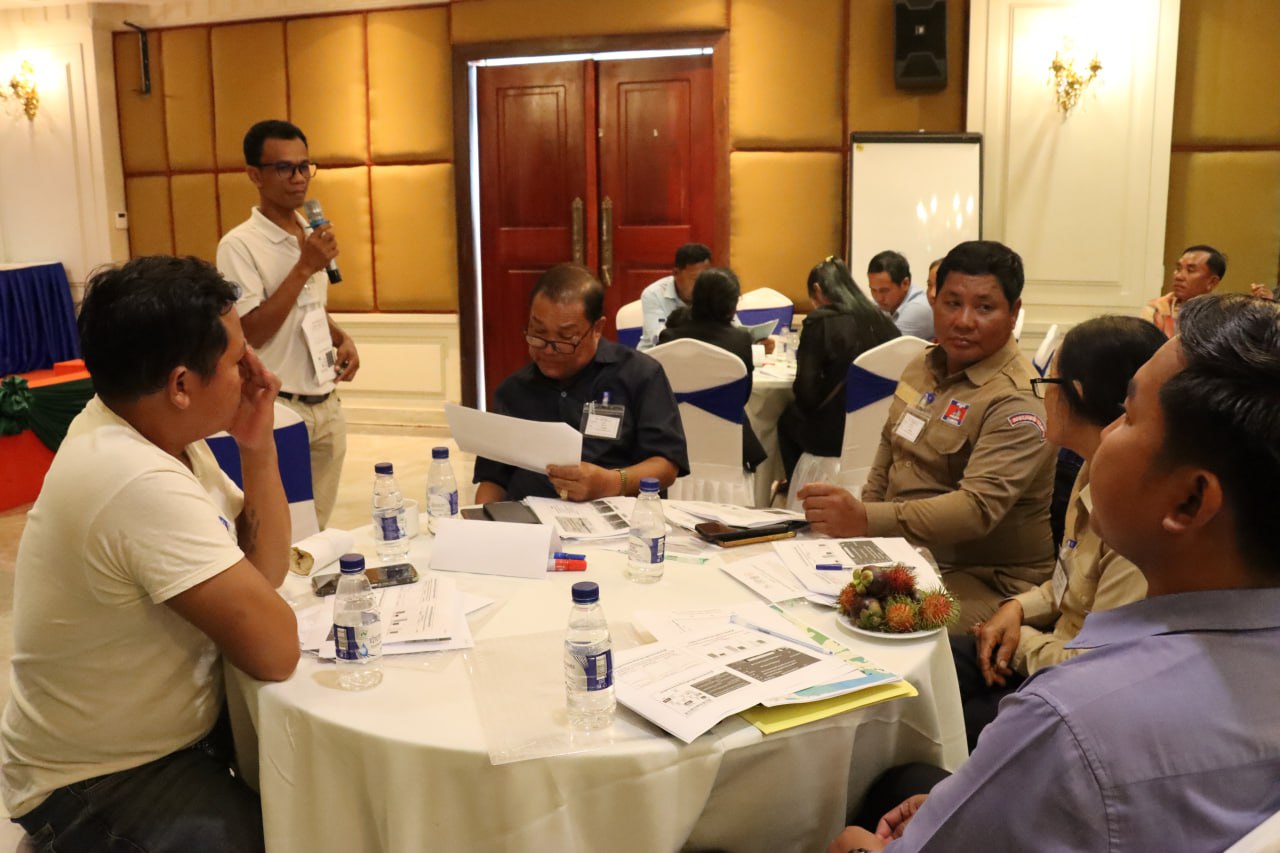សិក្ខាសាលាប្រឹក្សាយោបល់រវាងសហគមន៍នេសាទ និងអ្នកវិទ្យាសាស្ត្រ ដើម្បីសិក្សាពីផលប៉ះពាល់នៃចរន្តទឹកបញ្រ្ចាសពីបឹងទន្លេសាបលើការធ្វើចរាចររបស់សហគមន៍ត្រី
ក្រុងកំពង់ឆ្នាំង៖ នាព្រឹកថ្ងៃសៅរ៍ ទី១០ ខែឧសភា ឆ្នាំ២០២៥ វិទ្យាស្ថានគរុកោសល្យបាត់ដំបង(វគប) សហការជាមួយវិទ្យាស្ថានបច្ចេកវិទ្យាកម្ពុជា(វបក) និងវិទ្យាស្ថានស្រាវជ្រាវដើម្បីការងារអភិវឌ្ឍបារាំង(IRD) បានរៀបចំសិក្ខាសាលាប្រឹក្សាយោបល់រវាងសហគមន៍នេសាទ និងអ្នកវិទ្យាសាស្ត្រ ដើម្បីសិក្សាពីផលប៉ះពាល់នៃចរន្តទឹកបញ្រ្ចាសពីបឹងទន្លេសាបលើការធ្វើចរាចររបស់សហគមន៍ត្រីក្រោមអធិបតីភាព ឯកឧត្តមបណ្ឌិត ជា រដ្ឋា នាយក វគប និងលោកបណ្ឌិត ប៉ូល បូដ្រុង (Dr. Paul Baudron) អ្នកស្រាវជ្រាវជាន់ខ្ពស់វិទ្យាស្ថាន(IRD) និងជាប្រធានគម្រោង FEF-R INVERSAP។ សិក្ខាសាលានេះមានការអញ្ជើញចូលរួមពីតំណាងសហគមន៍នេសាទតាមបណ្តោយដងទន្លេសាប និងក្នុងបឹងទន្លេសាបចំនួន ១៥ នាក់ មន្ត្រីជំនាញពីខណ្ឌជលផលចំនួន ៣ រូប និងអ្នកស្រាវជ្រាវចំនួន ៩ រូប ពី វិទ្យាស្ថានគរុកោសល្យបាត់ដំបង(BTEC) វិទ្យាស្ថានបច្ចេកវិទ្យាកម្ពុជា(វបក) និងវិទ្យាស្ថានស្រាវជ្រាវដើម្បីការងារអភិវឌ្ឍបារាំង(IRD)។ សិក្ខាសាលានេះជាផ្នែកមួយនៃគម្រោង FEF-R Inversap ដែលដឹកនាំអនុវត្តដោយវិទ្យាស្ថាន IRD ដែលគម្រោងនេះមានរយៈពេលមួយឆ្នាំ ទទួលបានមូលនិធិគាំទ្រពីស្ថានទូតបារាំងប្រចំាកម្ពុជាតាមរយៈកម្មវិធី Fonds Équipe France Rapide (FEF-R) ហើយក៏មានការចូលរួមពីអ្នកស្រាវជ្រាវមកពីអាជ្ញាធរទន្លេសាប(TSA) ទាក់ទងនឹងតុល្យភាពទឹកបឹងទន្លេសាបផងដែរ។
សិក្ខាសាលានេះមានគោលបំណង៖ (១) បង្ហាញពីគោលដៅរបស់គម្រោង និងសកម្មភាពដែលបានគ្រោងទុក និង(២)ចែករំលែកអំពីលទ្ធផលស្រាវជ្រាវបឋម ដែលជាធាតុចូលក្នុងការពិភាក្សាផ្លាស់ប្តូរមតិយោបល់ប្រកបដោយអត្ថន័យរវាងអ្នកវិទ្យាសាស្ត្រ និងសហគមន៍អ្នកនេសាទដែលជាអ្នកមានបទពិសោធន៍ និងរស់នៅជាប្រចាំក្នុងប្រព័ន្ធបឹងទន្លេសាប។ លើសពីនេះ ការពិភាក្សានេះផ្តោតសំខាន់លើស្ថានភាពលំហូរទឹកបញ្ច្រាសរបស់ប្រព័ន្ធបឹងទន្លេសាប(Reverse flow) ជាបាតុភូតជលសាស្រ្តដ៏អស្ចារ្យ និងផលប៉ះពាល់លើចរាចររបស់សហគមន៍ត្រី ក៏ដូចជាសុខភាពប្រព័ន្ធអេកូឡូស៊ីក្នុងបឹងទន្លេសាប។ ជាលទ្ធផល អ្នកនេសាទបានចែករំលែកការយល់ដឹងដ៏មានតម្លៃនៅទីតាំងដែលពួកគាត់រស់នៅនិងប្រកបរបរនេសាទជាប្រចាំ ដែលជាធាតុចូលដ៏សំខាន់ និងជាចំណេះដឹងបន្ថែមក្នុងការកែលម្អវិធីសាស្រ្តស្រាវជ្រាវ និងការស្វែងយល់ពីបាតុភូតធម្មជាតិនៃលំហូរទឹកដែលកើតមានក្នុងប្រព័ន្ធបឹងទន្លេសាប។ សិក្ខាសាលាក៏បានផ្តល់ជាវេទិកាសម្រាប់កិច្ចពិភាក្សាអំពីបញ្ហាប្រឈមនាពេលបច្ចុប្បន្ន និងទិសដៅអនាគតសម្រាប់ការគ្រប់គ្រងទន្លេ និងជលផលរបស់បឹងទន្លេសាបឱ្យកាន់តែមាននិរន្តរភាព។
សិក្ខាសាលាថ្ងៃនេះបង្កើតឡើងដោយមានការតភ្ជាប់នៃចំណេះដឹងរវាងអ្នកស្រាវជ្រាវ និងប្រជានេសាទ ដែលជាគំនិតផ្តួចផ្តើមដ៏សំខាន់មួយឆ្ពោះទៅរកការធ្វើឱ្យប្រសើរឡើងនូវការគ្រប់គ្រងធនធានធម្មជាតិនៃប្រព័ន្ធបឹងទន្លេសាប ទន្ទឹមនឹងការជួយការពារភាពសម្បូរបែបនៃសេវាកម្មប្រព័ន្ធអេកូឡូស៊ីរបស់បឹង ដែលគាំទ្រដល់ជីវភាពរស់នៅរបស់ប្រជាជនកម្ពុជារាប់លាននាក់។
English's below:
Workshop Unites Fishermen and Scientists to Study the impact of Tonle Sap River’s inversions on Fish Migration
A participatory workshop was held on Saturday, June 10, in Kampong Chhnang. It brought together researchers and fishing communities to collaborate on a crucial study of how the Tonle Sap River’s seasonal flow reversal affects fish populations and migration.
The event brought together 15 representatives from local fishing communities, 3 officials from fishery cantonments, and 9 researchers from Battambang Teacher Education College (BTEC), Institute of Technology of Cambodia (ITC) and French National Research Institute for Sustainable Development (IRD). Led by IRD, this initiative is part of the Inversap project, supported by funding from the French Embassy through the FEF-R program. The project aims to better understand and anticipate the Tonle Sap River’s seasonal flow reversals and their effects on fish migration. The project also includes researchers from the Tonle Sap Authority, who contribute their expertise to investigations focused on the lake’s water balance and hydrological dynamics.
The workshop aimed to share early findings from data collected through daily participatory monitoring carried out by local fishermen and submitted via a dedicated web app. These findings were contextualized using analytical frameworks developed by academic teams, fostering meaningful dialogue between scientists and community members. Discussions focused on the river’s distinctive hydrological patterns and their impact on fish migration and overall ecosystem health.
Fishermen shared valuable on-the-ground insights, underscoring the importance of local knowledge in complementing scientific perspectives. Their daily observations offered nuanced context to the data and enriched the collective understanding of the river’s dynamics.
By fostering collaboration between community members and scientists, the initiative contributes to a deeper understanding of the Tonle Sap River’s complex hydrology and its implications for fish migration. These insights that are essential for helping to protect its ecological richness and support the livelihoods that depend on it.
Facebook's post below:
ភ្ជាប់ទំនាក់ទំនងជាមួយពួកយើង
📞 +855-92 582 772 / +855-86 858 570
📩 info@btec.edu.kh
Telegram Channel: t.me/btecnews
Youtube Channel: https://www.youtube.com/@BTECMedia
